
Sacred Heart of Christ
08-29-2021Pastoral ReflectionsRev. Brian F. ManningMedieval legends inform us that most knights died from defending truth, beauty and freedom, but historians of later centuries inform us that the knights actually died from the result of their armor. The constricting metal "clothing" caused them to succumb to excessive heat exhaustion and dehydration; they usually died from a heart attack. Are you aware that the rules and customs of life which are supposed to support a good life often times can cause the death of one's heart. This is an issue which Jesus spoke and taught about, the death of life caused by rules that do not give life, but cause death.
READ MORE
To Whom Shall We Go
08-22-2021Pastoral ReflectionsRev. Brian F. ManningWhenever we enter a room through a doorway, we go through a place that it is called a "threshold". We cross this threshold when we have entered a new space and have left behind the room and space which we had been in. Many times, we stop at the threshold of a room to see what is before us, to remember what we left behind or to think about if we should even enter the new space. Thresholds hold great meaning, although often times we do not realize it. Thresholds are quite symbolic.
READ MORE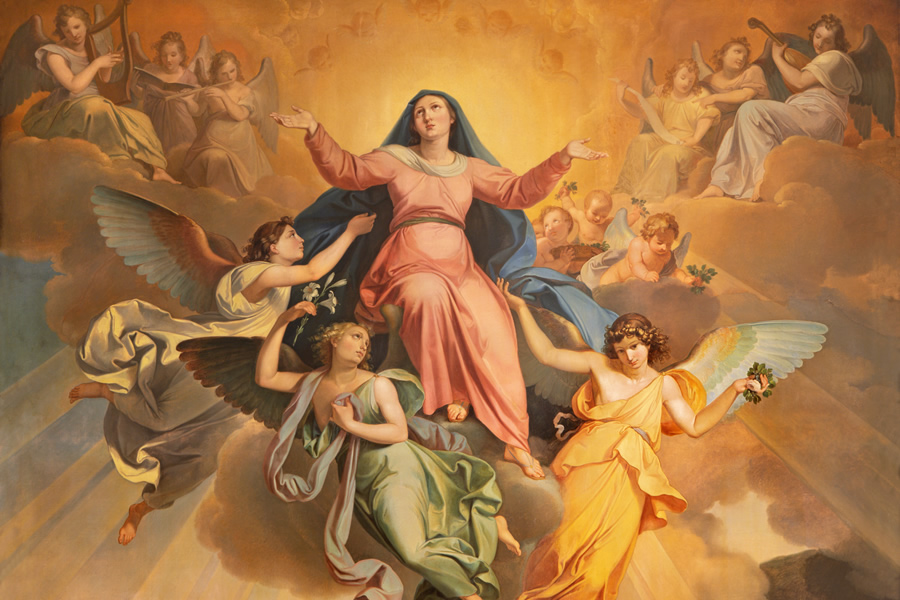
Mary Magnifies the Greatest of Our God
08-15-2021Pastoral ReflectionsRev. Brian F. ManningThe Feast of Mary's Assumption into heaven is a feast that celebrates the triumph of Mary into heaven first and then also includes "all who hear the word of God and keep it." Slowly, ever so slowly, the honor paid to Mary by Christians grew through time. In early church documents we learn of Mary's "dormition" meaning the falling asleep or death. In fact, it was the Orthodox Church, the Church of the East, which first celebrated as a formal feast Mary's Dormition, or what we have come in the Church of the West to call 'the Assumption of Mary into heaven." No matter its history or whatever word(s) you use to describe this reality, this feast of Mary is precious and is cherished in our Latin Rite Roman Catholic Tradition.
READ MORE
Taste and See
08-08-2021Pastoral ReflectionsRev. Brian F. ManningToday most of us are very conscious to "eat healthy" and not to indulge frequently in food that is not nutritious for us. Many people now shop only for organic certified foods. Some folks have now switched to an entirely plant-based diet. Overall we are blessed in this country with the privilege of having such a great variety of fresh and healthy foodstuffs. There are some among us, even in the Town of Franklin, who do struggle to obtain food. For them, food is a scarcity which both through your generosity, our Saint Vincent de Paul Society and the Franklin Food Pantry help them. Many of us also have memories of being young and having our parents say to us "Taste and see if you like it or just have a little". We often hear how important it is to taste food. This week's readings are about the spiritual food which is good for us.
READ MORE
Give You Eternal Life
08-01-2021Pastoral ReflectionsRev. Brian F. ManningThis weekend, we discover in our first reading that life was not easy for the Israelites as they left Egypt to go to the Promised Land. God had rescued them from the swords and whips of the Egyptians and now they had very tough going in the desert. They had adopted a typical human behavior of complaining unceasingly. When they quite bitterly and angrily complained of being hungry to God, he sent them manna, but they resisted that food. They continued to complain. It took Moses to point out to them that the manna was the answer to their prayers to God. They missed the obvious.
READ MORE
Breaking of Bread
07-25-2021Pastoral ReflectionsRev. Brian F. ManningAt Sunday Mass we read a major gospel each church year which tells the story of Jesus and His life; in this process we read only selected sections which have been curated to tell the essential story of Jesus Christ. In fact, we read from only Matthew, Mark, or Luke in a three-year cycle because they are gospels which are written from an "eye-witness" point of view. The Gospel of John offers a distinctly different view of the life and message of Jesus. This year our gospel is that of Saint Mark. We do, however, fill in at times with sections from the Gospel of John. Mark is the shortest of all of the gospels, so it is necessary at times to read at length from John to add a depth or a dimension to what we are following in the life of Christ each Sunday. This Sunday we begin the section of John called "the Bread of Life" passage. The Eucharist is the focus of our reading of the Gospel of John for the next 4 weeks. Perhaps these readings will help us put the proper focus on the controversies which are circulating in our Church and in the American public world. I am attempting to provide a reflection for your faith which hopefully supports and helps you to be a faithful disciple and follower of Jesus Christ, instead of being caught up in other things. How often have I said "to know what matters and pay attention to what matters." This advice sounds simple, but often it is very hard to follow.
READ MORE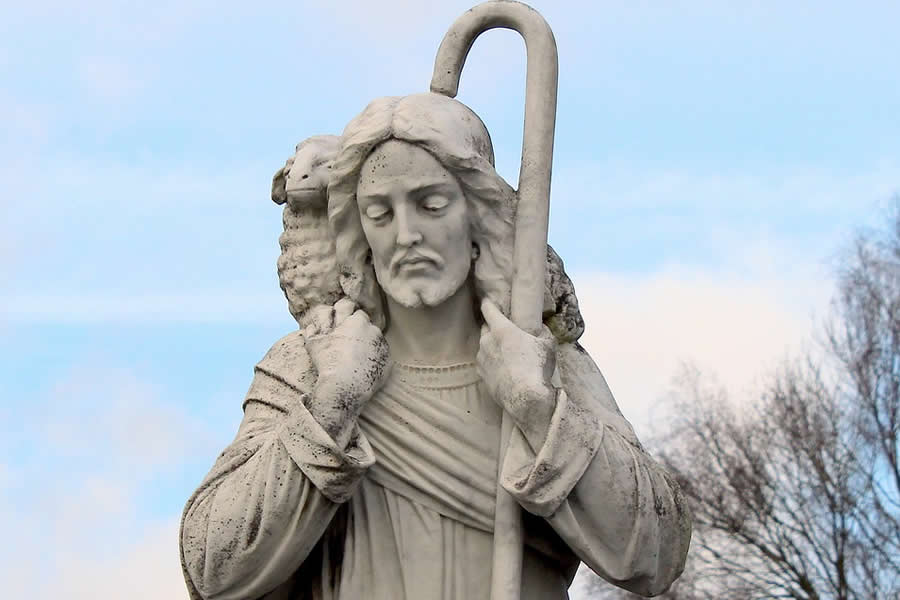
Green Fields and Restful Waters
07-18-2021Pastoral ReflectionsRev. Brian F. ManningIn today's gospel, the writer Mark was trying to stir the deep memories of the Jews with his use of the image of a Shepherd. In the very long history of the Jews, they had always tended sheep. In fact, we can recall the story of long before the Jews had been Israel, when Abraham and his wife Sarah left their homeland for the Promised Land and took their many sheep along with them. You may recall that at one time even Moses tended the sheep of his father-in-law. The great King of Israel, David himself, was a shepherd. In fact, David was called from the fields when he was tending sheep to be anointed by Samuel to be King of Israel. Sheep and shepherds are in the memory DNA of the Jews at the time Mark is composing his gospel.
READ MORE
What Matters in Faith
07-11-2021Pastoral ReflectionsRev. Brian F. ManningAlthough we are usually an infant when we are baptized, the church's theology says that at the time of our baptism, our vocation to follow Christ starts. We are His beloved children and are united to Him. Every one of us at baptism is called to become a holy and good person. How this all happens depends upon the grace of God in our lives and how we accept this grace and live it. In our reading from Saint Paul this weekend, we hear how the great apostle Paul gave great praise and was full of gratitude and amazement that he of all people had been chosen by God, redeemed by Christ, and drawn into the eternal mysteries. We need to know and understand that this calling and election is not Paul's alone. This calling and election, in fact, belongs to all the baptized. We need to remember that we also are chosen and are sealed by the promised Spirit. All of this has happened in each one of us and all we have to do, like Paul, is give praise and thanks.
READ MORE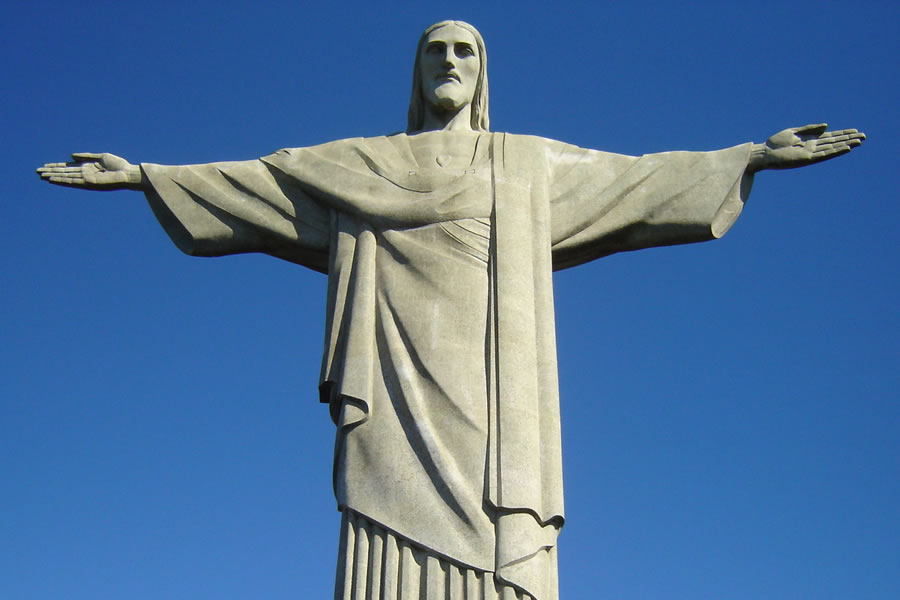
Name of Jesus
07-04-2021Pastoral ReflectionsRev. Brian F. ManningToday in common discussion we often use the word "revelation, or to reveal" in talking about parents who hold a 'gender reveal party". This word "revelation" is so frequently used in religious contexts. In religious use it means to "show forth" or to "make manifest." The root of the word, however, is a stem that means hidden or veiled. When we listen to or read scripture, the Bible, we are to recognize that God's thoughts and words are being shown forth or made manifest to us. When we read or listen and then also reflect on scripture, the Word of God, we learn many, many truths, ideas, and insights into ourselves and lives which may have been hidden for various reasons.
READ MORE
Heart speaks to Heart
06-27-2021Pastoral ReflectionsRev. Brian F. ManningThe section of the Bible in the Old Testament called the "Wisdom Literature" actually offers a lot of wisdom and insights for us who live today. Just because much of what is written in the Wisdom Books is from well over two millennia ago, it does not mean it lacks meaning and power for us now. We often dismiss our scripture as dusty and irrelevant and look to the scripture of other religions that are as old as our Judeo-Christian tradition. I often think we do this because these writings appear to be exotic and distant, and anything that is different and from far away often appeals more to many folk.
READ MORE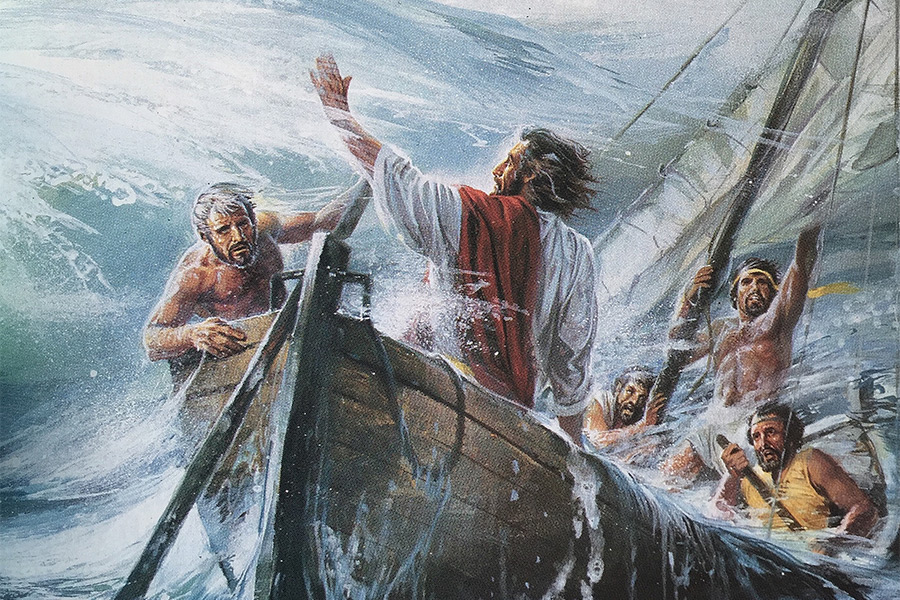
Safe with Jesus
06-20-2021Pastoral ReflectionsRev. Brian F. ManningWhen we listen to the various passages of the Book of Job, we hear the suffering Job calling out to God. Our Old Testament reading this weekend is the first response of God to Job's calling out to Him. The irony of the situation for Job is that God's reply is not what Job had expected or hoped for. God, instead, hits Job with a very long list of unanswerable questions. Job, in asking for God to speak to him, never expected what he got when God spoke. He wanted clear direct answers from God that explained everything; instead, God gave Job a battery of unanswerable queries. Job got more than he bargained for; he wanted solutions from God. Job, instead, got confusing "mystery" and learned the very great truth that God's ways are not Job's or often even any of our ways.
READ MORE
God is in Charge
06-13-2021Pastoral ReflectionsRev. Brian F. ManningOne of the best ways to get people to pay attention to you is to tell them a fascinating and intriguing story. A wonderful story captures the imagination and always contains more than what the story tells. We should realize that the stories of today's scripture at Mass demand our attention and reveal much to us, even though the stories retain some mystery or secrets about God.
READ MORE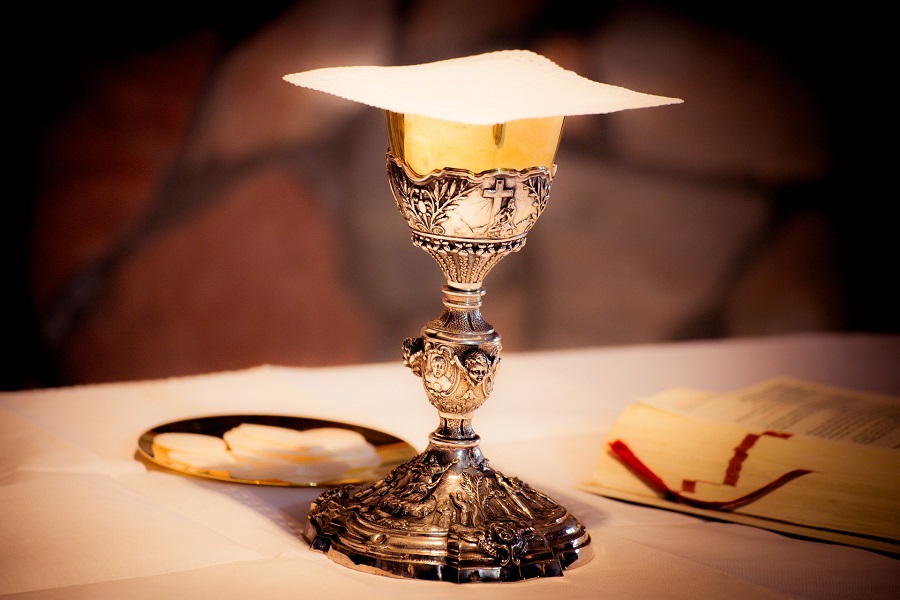
We Are the Body of Christ
06-06-2021Pastoral ReflectionsRev. Brian F. ManningOne of the best human activities we have is to gather as a family and even with friends around a table and have a wonderful meal. Sometimes it can be very fussy food and other times simple and tasty. The meal is really about sharing our connection to one another. Oftentimes this sharing actually involves certain rituals. Who are the cook(s) for special food? Who has set the table? Who serves? Do we wait for everyone to be seated? Who says grace? How does discussion take place? Who is in charge of the joy and laughter? Who is to re-tell the most important stories of family and friends that tell us who we really are? And, most importantly, who cleans up with washing the dishes and also the pots and pans and tidies up the kitchen and dining room? So this great symbolism of Jesus being the spiritual food for us and the preparation and ritual that go along with it are indeed most significant. This Feast of the Body and Blood of Christ reminds us our spiritual food has great and profound meaning. This ritual meal of the Mass touches our inner being consciously and unconsciously.
READ MORE